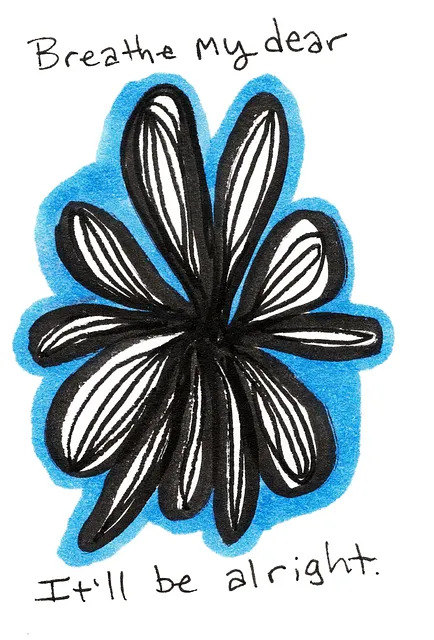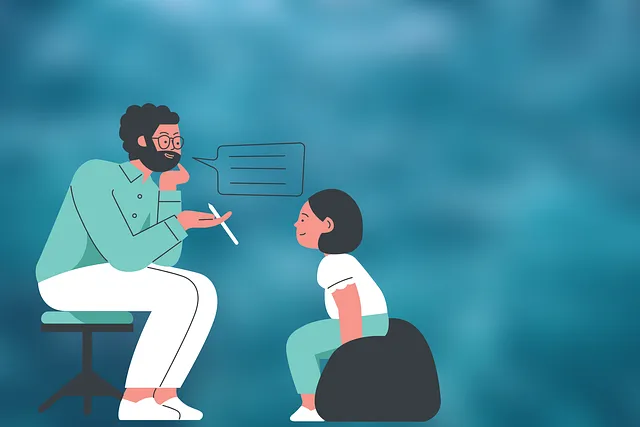Lone Tree Kaiser Permanente's psychiatry department leads in cultural competency, as evidenced by positive reviews, through innovative training that goes beyond theory with practical applications and self-awareness exercises. They integrate trauma support services and community outreach programs to create an inclusive environment tailored to diverse patient needs. Their approach improves mental health outcomes, enhances communication, builds trust, and promotes emotional healing by empowering healthcare professionals to understand and respect various cultural backgrounds and beliefs, as highlighted in their reviews.
Healthcare provider cultural competency training is an essential component of modern patient care, addressing diverse needs and improving outcomes. This article delves into the critical topic, exploring its impact on healthcare delivery. We examine mental health professionals’ role in navigating diverse communities with sensitivity, drawing insights from Lone Tree Kaiser Permanente psychiatry reviews. Additionally, we offer strategies for implementing effective training programs, emphasizing continuous improvement within healthcare organizations. Understanding cultural competency is no longer an option but a necessity.
- Understanding Cultural Competency in Healthcare: Why It Matters and Its Impact on Patient Care
- The Role of Mental Health Professionals: Navigating Diverse Communities with Sensitivity
- Lone Tree Kaiser Permanente Psychiatry Reviews: Uncovering Best Practices for Cultural Competency Training
- Implementing Effective Training Programs: Strategies for Continuous Improvement in Healthcare Organizations
Understanding Cultural Competency in Healthcare: Why It Matters and Its Impact on Patient Care

Cultural competency in healthcare is an essential aspect that often goes beyond medical expertise, focusing on understanding and respecting diverse cultural backgrounds and beliefs among patients. This concept is particularly significant in today’s diverse society where healthcare providers interact with individuals from various ethnic, racial, and cultural origins. Lone Tree Kaiser Permanente psychiatry reviews consistently highlight the impact of cultural competency on patient care outcomes, emphasizing its role in fostering effective communication and building trust.
When healthcare professionals are culturally competent, they can adapt their approach to better address patients’ unique needs. This includes recognizing and appreciating different cultural practices, values, and perspectives, which may influence how patients perceive and engage with mental health services. For instance, a patient’s background might shape their understanding of mental health conditions and treatment preferences. By incorporating empathy building strategies and self-care practices, mental health professionals can conduct thorough risk assessments for their clients while ensuring they receive care that aligns with their cultural identity. This approach not only improves patient satisfaction but also leads to better adherence to treatment plans, ultimately enhancing the overall quality of healthcare services provided.
The Role of Mental Health Professionals: Navigating Diverse Communities with Sensitivity

Mental health professionals play a vital role in fostering cultural competency within healthcare systems, especially when interacting with diverse communities. At Lone Tree Kaiser Permanente, psychiatry reviews highlight the importance of sensitivity and adaptability when addressing various cultural backgrounds and experiences. These professionals are at the forefront of navigating complex social and emotional landscapes, requiring a nuanced approach to deliver effective care.
By incorporating Mental Health Education Programs Design tailored to these needs, healthcare providers can enhance their ability to support individuals from diverse communities. Trauma Support Services become integral in addressing the unique challenges faced by those with traumatic backgrounds, ensuring a safe and supportive environment. This sensitive navigation not only improves patient outcomes but also strengthens the overall mental health ecosystem, as it respects and embraces the rich tapestry of cultural differences within society.
Lone Tree Kaiser Permanente Psychiatry Reviews: Uncovering Best Practices for Cultural Competency Training

The Lone Tree Kaiser Permanente Psychiatry department has emerged as a beacon for cultural competency training within the healthcare industry. Their comprehensive reviews highlight best practices that go beyond theoretical knowledge, emphasizing practical applications and self-awareness exercises to bridge cultural gaps. By integrating topics such as Trauma Support Services and Community Outreach Program Implementation, they ensure a holistic approach that respects diverse patient backgrounds and experiences.
These initiatives reflect a commitment to fostering an inclusive environment where mental health care is accessible and tailored to individual needs. The Lone Tree Kaiser Permanente reviews serve as a valuable resource, inspiring other healthcare providers to elevate their cultural competency training programs and ultimately improve patient outcomes through enhanced understanding and empathy.
Implementing Effective Training Programs: Strategies for Continuous Improvement in Healthcare Organizations

Implementing effective training programs is a cornerstone for enhancing cultural competency within healthcare organizations, such as Lone Tree Kaiser Permanente’s psychiatry department, as evidenced by positive psychiatry reviews. These programs should go beyond surface-level awareness and focus on fostering genuine understanding and empathy among healthcare providers. Interactive workshops, case studies, and role-playing scenarios can help trainees navigate complex interpersonal dynamics, enabling them to offer more personalized and culturally sensitive care.
Regularly updating training curricula with real-world examples and diverse perspectives ensures that staff remain equipped to address evolving cultural needs. Encouraging open dialogue, self-reflection, and ongoing learning contributes to a culture of continuous improvement. This approach not only boosts the confidence of healthcare providers but also enhances patient outcomes by promoting effective communication, reducing miscommunications, and fostering emotional healing processes.
Healthcare provider cultural competency training, as highlighted by the Lone Tree Kaiser Permanente psychiatry reviews, is a vital component of delivering quality patient care. By understanding and navigating diverse communities with sensitivity, mental health professionals can significantly improve patient outcomes. Implementing effective training programs that emphasize continuous improvement ensures healthcare organizations remain responsive to the evolving needs of their patients, fostering an inclusive and compassionate environment.





